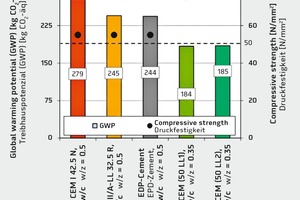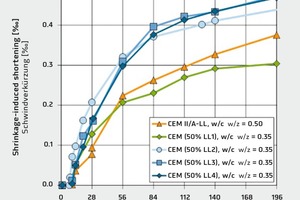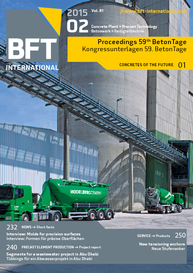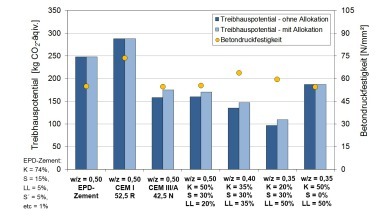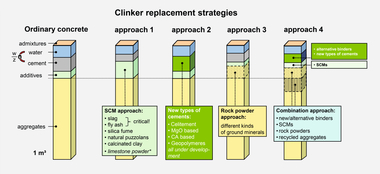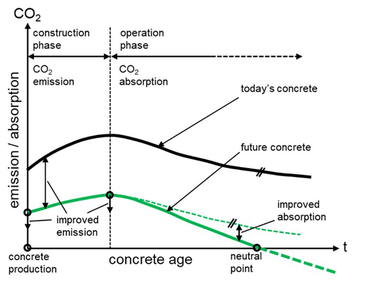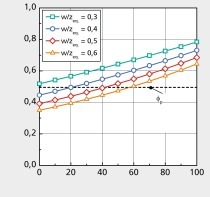State-of-the-art concretes containing cements with a reduced clinker ratio
Concrete is the most widespread construction material of our times – about 12 billion m3 of concrete are produced worldwide each year. The manufacture of cement, as one of the raw materials of concrete, is associated with about 5 % of global anthropogenic CO2 emissions [1]. It is particularly, that the production of Portland cement clinker contained in the cement has an environmental impact equaling emissions of about 850 kg of CO2 per t of clinker [1]. Reducing the ratio of Portland cement clinker would thus significantly mitigate the environmental impact of building with concrete. There are...

